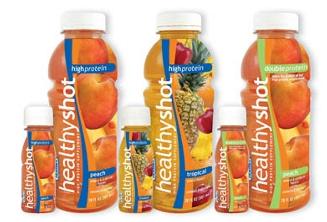To identify solutions to the recent issues surrounding polyethylene terephthalate (PET) bottles and full-wrap labels in the recycle stream, Eastman Chemical Co. has organized a full-wrap label consortium. The group, which includes members from more than 30 companies across the value chain, is charged with digging further into the issues to better understand the problems and developing near-term and long-term solutions that will benefit all involved parties.

Approximately 80 percent of full-wrap labels in North America are found on PET containers, the most recycled plastic on the market. As full-wrap labels are becoming more popular because they offer increased shelf appeal, many PET bottles also have been downgauged. The combination of these two elements has exacerbated the challenge recyclers face in processing these PET containers.
"There's been a lot of discussion in the marketplace about the recycling of containers with full-wrap labels, and we thought it was time a group formed to collaboratively discuss the challenges and work toward holistic, win-win solutions for everyone, including those companies that process and recycle containers," says Holli Whitt, market development manager, sustainability for specialty plastics, Eastman Chemical Company. "Full-wrap labels are becoming more popular with brand owners because they offer increased shelf appeal that can impact consumer purchasing decisions and brand loyalty. We want to find solutions that will allow brand owners to continue using these labels to secure brand recognition, shelf appeal and market share while mitigating the challenges recyclers are experiencing."
Multiple solutions
There are some recyclers who can successfully process PET containers with full-wrap labels today. The consortium, however, is focused on finding solutions that can benefit everyone.
Consortium members conclude there likely will need to be a combination of solutions, rather than a single solution, to address the issues. Currently, those solutions include floatable labels, label perforation to aid in removing labels at reclaimers' facilities, delabeling equipment availability at reclaimers' facilities and consumers removing the label from the end product prior to reclamation.
The Association of Postconsumer Plastic Recyclers, the organization that published "Sleeve Label Substrate for PET Bottles Critical Guidance Document," has suggested developing floatable labels.
Consortium details
The full-wrap label consortium members include representatives from consumer goods manufacturers, resin producers, film extruders, print converters and label producers, equipment manufacturers, bottlers and packagers, plastics recyclers and independent testing firms. More than 30 companies across the value chain represent the full consortium membership, including Accraply, Axon Corp., Bilcare Research, Inc., Bonset America Corp., Brook & Whittle, Fort Dearborn Company, Gilbreth, Hammer Packaging, Klöckner Pentaplast, PDC International, Plastics Technologies, Inc., Printpack, Inc., SleeveCo, SKC and Eastman Chemical Company.
The purpose of the first meeting, held in August 2012, was to discuss how labels are creating challenges in the recycling process and to begin exploring solutions. The second meeting, held in November 2012, was to consider the viability of potential solutions and identify critical success factors.
"We are working on the right combination of solutions to get the highest impact that makes the most economic sense," Whitt says. "At the upcoming February meeting, consortium members will close some of the knowledge gaps that currently exist and continue to assess potential solutions and how the solutions might work together best."
Members of the entire value chain are encouraged to participate in the consortium to learn more about and share knowledge of the challenges that exist within the PET recycle stream. Participation in the group gives members of the affected industries a chance to be part of the solution and ensures their part of the value chain and their interests are being considered.





